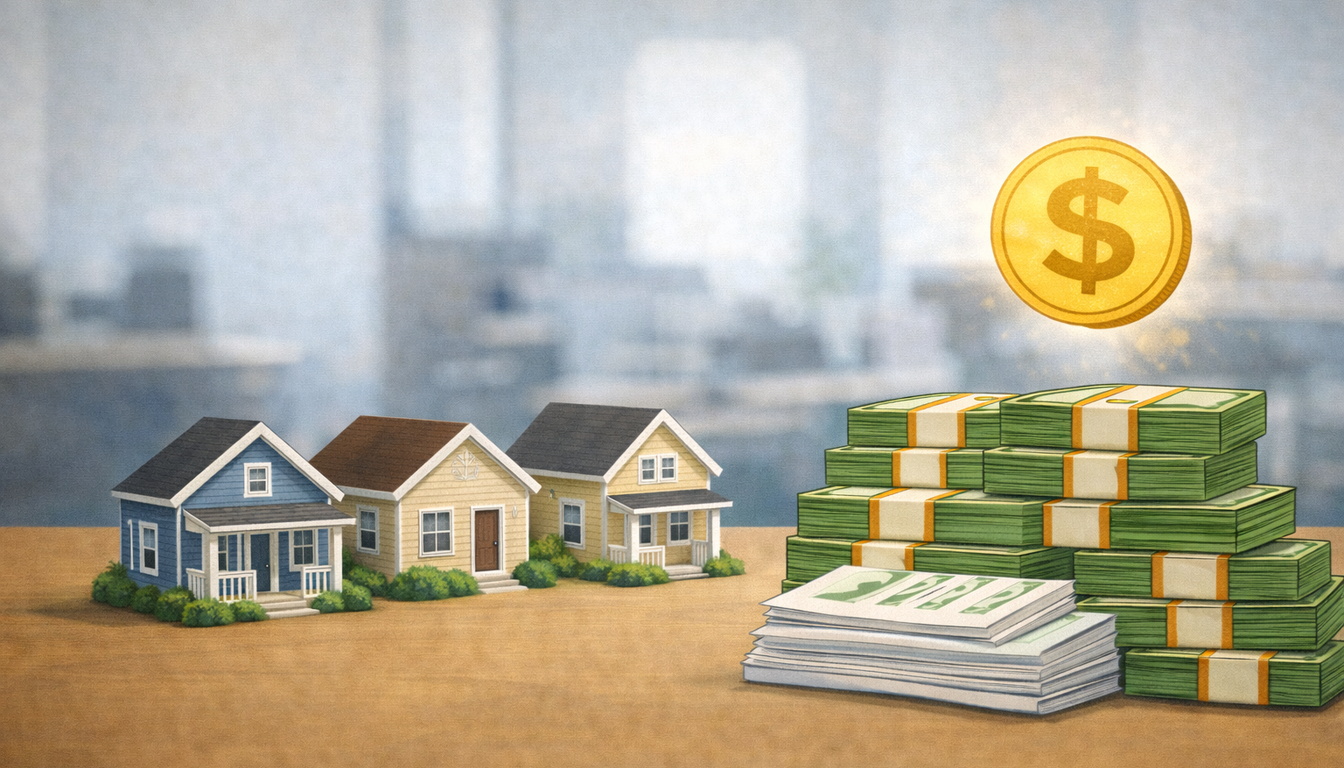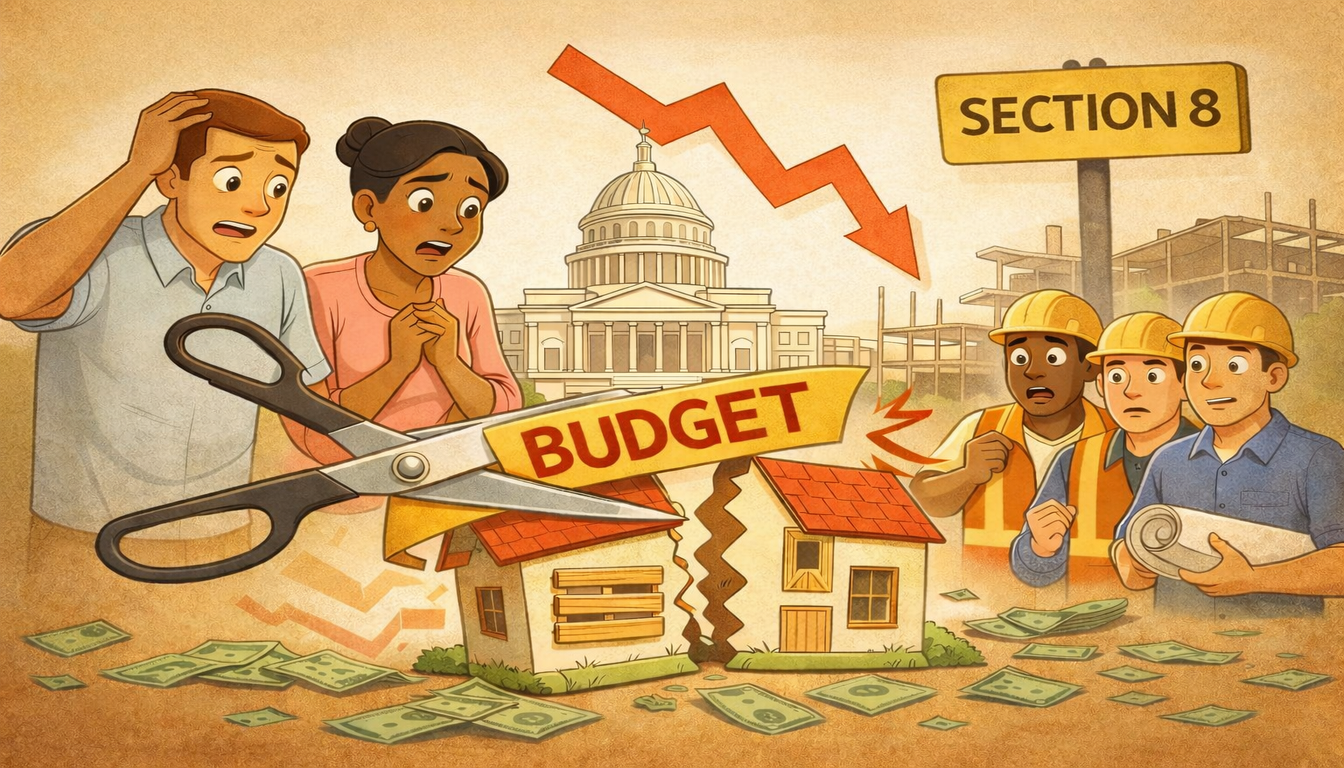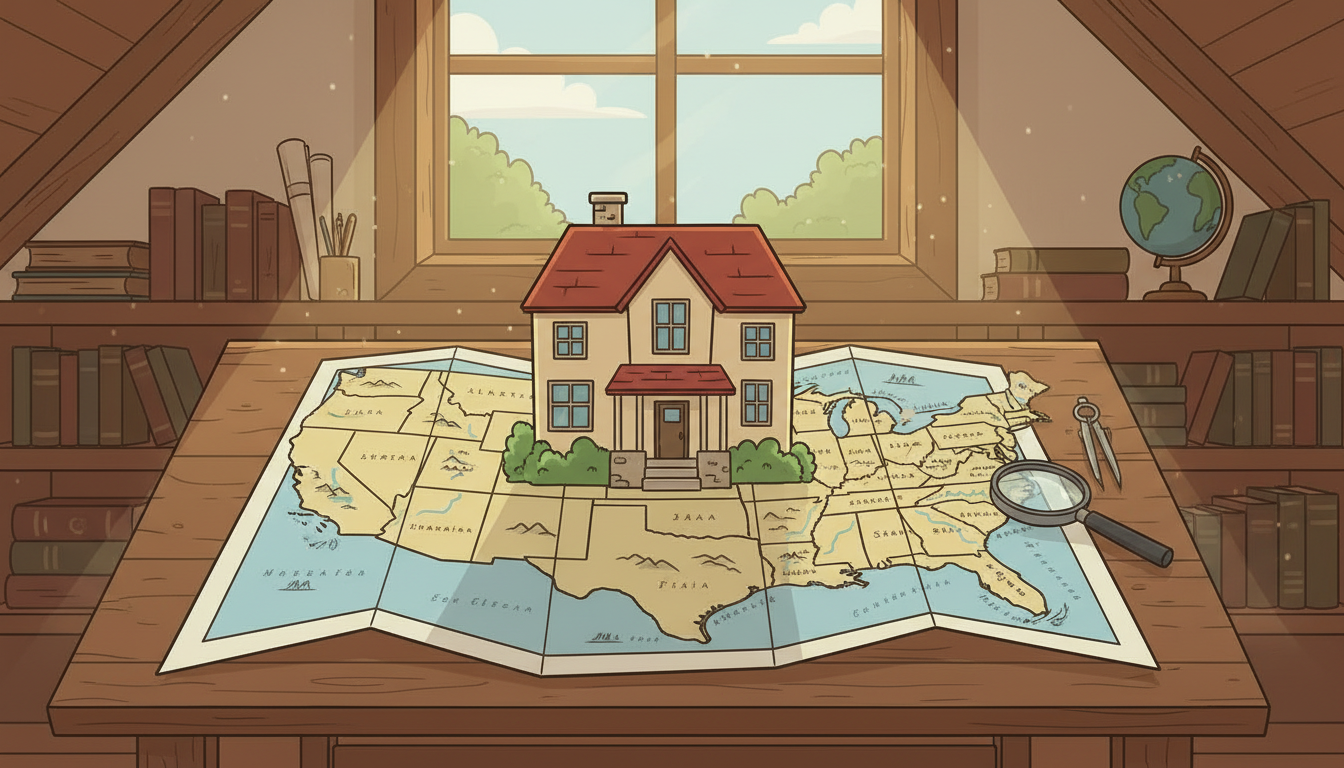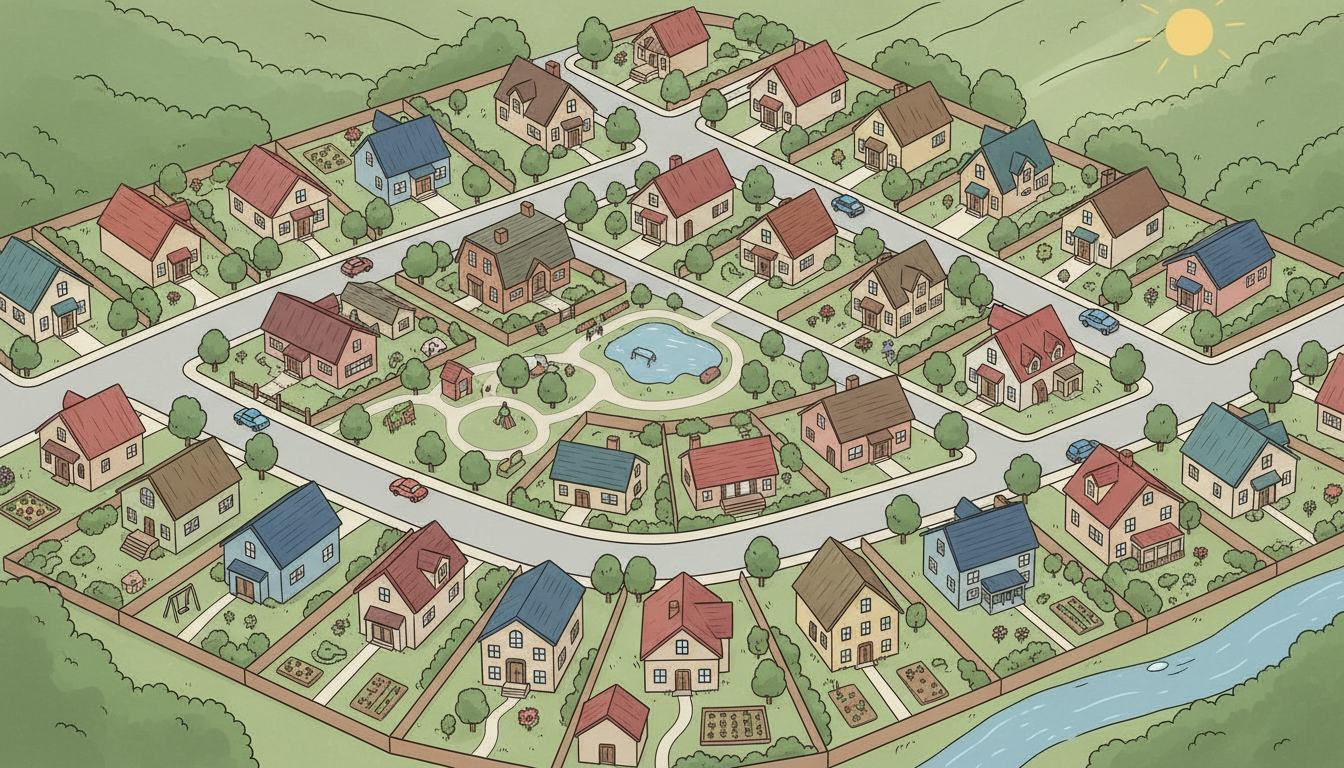
Congrats! You’ve got your Section 8 voucher in hand, and now it’s time to find a place to call home. But let’s be real—finding the right home isn’t as simple as picking the first place that accepts your voucher. This is where you and your family are going to live, so it’s worth taking the time to make sure it’s a good fit. Whether you need a certain number of bedrooms, want to live close to work, or need easy access to public transit, this guide will help you figure out how to find a home that works for you.
1. How Many Bedrooms Do You Really Need?
When looking for a home, it’s tempting to dream big. But be careful! The number of bedrooms you choose isn’t just about space—it’s also about costs and practicality. Here’s how to figure out what you need:
-
Family size: First, think about how many people are in your household. Do you have kids who need their own rooms? Could they share? Plan for both current and future needs—kids grow fast!
-
Special needs: If you or anyone in your family has specific needs, like a home office or space for medical equipment, that might mean an extra room. But avoid overdoing it; too much space can feel overwhelming, and you’ll end up paying more in utilities and rent.
Keep it realistic. A home with just enough room is easier to manage and keeps your budget in check.
2. Location, Location, Location
Your life might be changed by locating a property in the ideal area! It can save you money, worry, and time to be close to your place of employment, education, and other necessities. So how can one select the ideal location? Here's something to think about:
-
Work or school: How far is it from your potential home? A shorter commute saves you money on gas or public transportation and gives you more time with your family.
-
Public transportation: Not everyone drives, so having access to reliable buses or subways is a must for some people. Make sure to check routes and schedules before deciding.
-
Daily needs: Are there grocery stores, pharmacies, and restaurants nearby? Being close to these can save you hours each week. No one wants to drive 30 minutes just to grab groceries!
A good location makes life more convenient, so think about what you need in your day-to-day routine.
3. Get the Neighborhood Vibes Right
The neighborhood vibe can make or break your experience. Even if the house is great, the wrong neighborhood can make things difficult or uncomfortable. Here’s how to figure out if a neighborhood is the right fit for you:
-
Do you want quiet or active? Some people love a busy, lively area with lots of restaurants and cafes, while others prefer peace and quiet. Figure out what kind of vibe you want for your daily life.
-
Check out the safety. You want to feel safe where you live. Take some time to look into crime rates in the area and chat with people who live there if you can.
-
Look for amenities. Parks, playgrounds, and community centers can make your neighborhood more enjoyable, especially if you have kids.
Take a walk around the neighborhood at different times of day to get a feel for it. Sometimes, what looks good during the day might be less appealing at night.
4. Proximity to Schools Can Make a Huge Difference
If you have kids, good schools are a big deal. Living near a solid school can not only help your children thrive but can also make your life a lot easier. Here’s what to think about:
-
Quality of schools: Look up school ratings online to get a sense of the quality. Talk to parents in the neighborhood if you can—word of mouth can be just as valuable as ratings.
-
Distance: Can your kids walk to school, or is there a bus service nearby? The shorter the trip, the less stressful your mornings will be.
-
School services: Don’t forget about after-school programs! These can be a lifesaver for working parents, and having them nearby can make your day run smoother.
If education is a priority, consider how close your home will be to the school that’s best for your kids.
5. Public Transit or Driving: What Works for You?
Some people love the convenience of public transportation, while others prefer the independence of having a car. Either way, think about how you’ll get around in your new home.
If you rely on public transportation, make sure there are reliable options nearby:
-
Bus stops or subway stations: Check how close they are to your potential home.
-
Schedules and routes: Make sure the transit schedules work for your routine—early morning commutes, late-night shifts, etc.
If you drive, consider:
-
Parking availability: Is there parking included, or will you have to find street parking? Make sure it’s convenient and safe.
-
Traffic patterns: Check out the area during peak traffic times to see how long it will really take to get to work, school, or grocery stores.
6. How Close Are Grocery Stores and Other Essentials?
It may sound basic, but being close to grocery stores and other essentials can make or break your living situation. After all, nobody wants to drive 20 minutes just to buy milk!
-
Grocery stores: How far are you from the nearest grocery store? Having one nearby can save you tons of time, especially if you have a busy schedule.
-
Pharmacies and health services: Being close to a pharmacy or medical services is important, especially if you have regular prescriptions or health needs.
-
Restaurants and cafes: While not a necessity, having a few good restaurants nearby can make life more fun. Plus, if you’re ever in a pinch, it’s great to have food options close by.
Living near these places can save you time and reduce stress, so don’t overlook this aspect when choosing your home.

7. Keep an Eye on Your Budget
It’s easy to get caught up in finding your dream home, but let’s face it—budget matters. Section 8 will cover a portion of your rent, but you’ll still have to pay your share, and you want to make sure it’s something you can handle without stress.
-
Rent: Make sure the rent fits within the guidelines of Section 8, but also within your personal budget. Look at your monthly income and make sure you’re not stretching yourself too thin.
-
Utilities: Don’t forget about utilities like electricity, water, and gas. Ask if these are included in the rent or if you’ll need to cover them separately.
-
Unexpected costs: Factor in things like transportation, groceries, and any potential repairs. These small expenses can add up quickly.
Stick to your budget to avoid stress and keep your finances in check.
8. Make Sure the Home Is in Good Condition
Before you move into any home, inspect the property to make sure it’s in good condition. Here’s what you need to check:
-
Plumbing: Make sure the water runs well and that there aren’t any leaks.
-
Electricity: Test all the outlets, switches, and lights to make sure everything is functioning properly.
-
Appliances: If appliances like a stove or fridge are included, ensure they work and aren’t outdated.
A good inspection can save you headaches down the road.
9. Make Sure You’re Section 8 Ready
Before you start house hunting, make sure you’ve got everything ready on your end. If you haven’t applied yet, check out our guide on How To Apply for Section 8 Housing Choice Vouchers to get started. Already applied? Stay on top of things by reading How Can I Check My Section 8 Status?.
Being prepared will make your house search much smoother.
10. Did You Know You Can Buy a Home with Your Voucher?
That’s right—you can actually use your Section 8 voucher to buy a home! If you’re tired of renting and ready to invest in something permanent, this could be the opportunity you’ve been waiting for. Head over to Use Section 8 to Buy a Home! Here’s How... to learn more.
Final Thoughts: Finding the Perfect Home Is Totally Doable
Finding the right home takes some time and effort, but it’s 100% worth it. Whether it’s the number of rooms, location, or school proximity, knowing what you want and need will help you make a smart decision. Take your time, do your research, and keep your priorities in mind. Your home is where you’ll build your life, so make sure it’s a place that makes you happy, comfortable, and supported.
Navigating the Section 8 housing process can feel overwhelming, and that's where Section 8 Search comes in. We're more than just a listing website; we're a dedicated resource designed to make finding housing under the Housing Choice Voucher Program straightforward and stress-free. Our platform offers user-friendly tools to explore listings and waiting list statuses nationwide, all built on official HUD data. We're also passionate about providing clear, helpful information and guidance, empowering you with the knowledge you need to understand eligibility, complete your application, and confidently navigate your housing journey.








.png)
.png)
.jpg)



.png)
.png)
.png)



